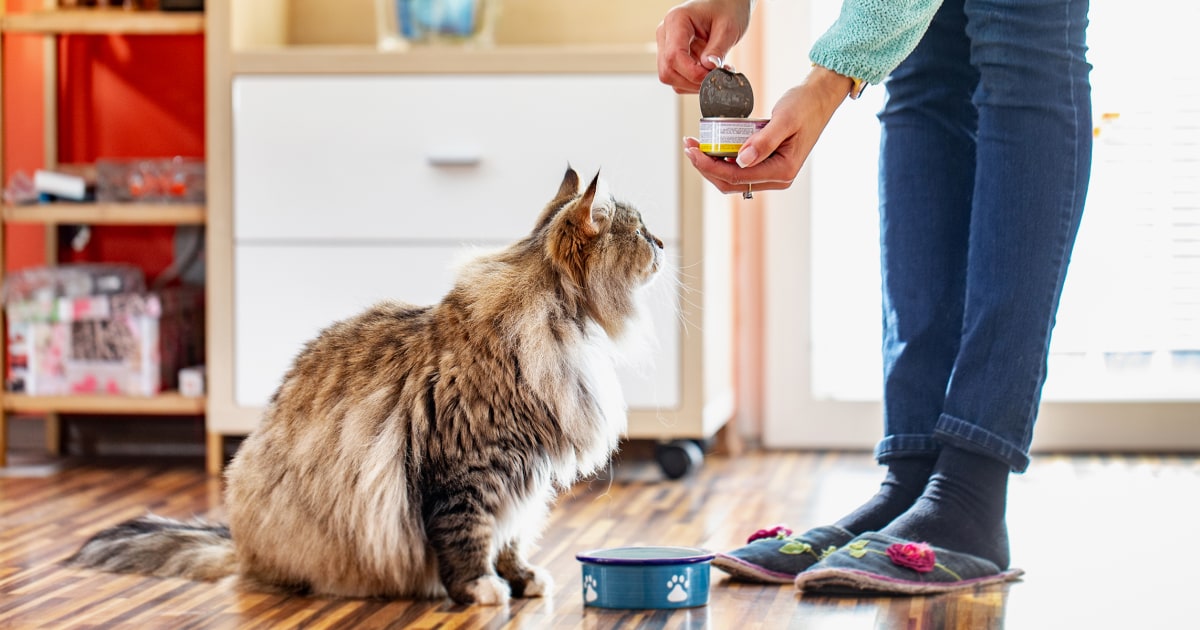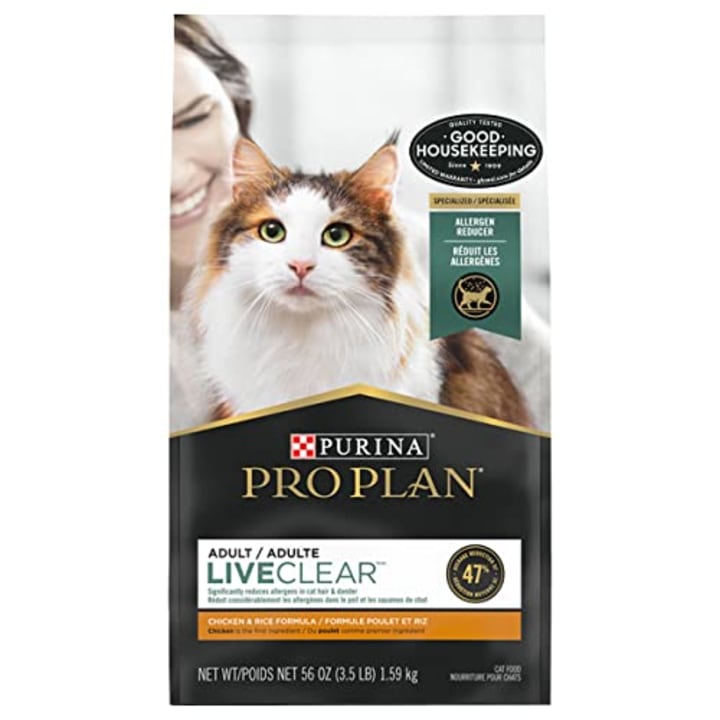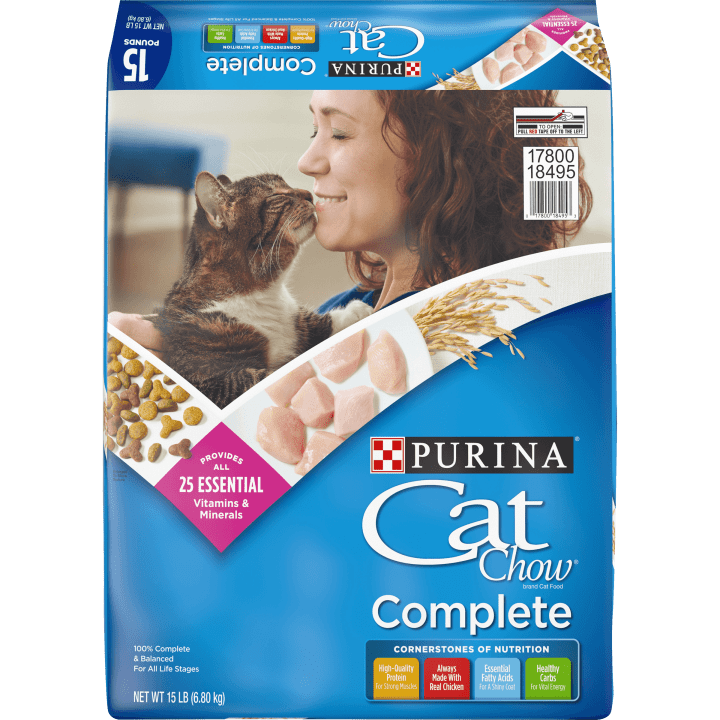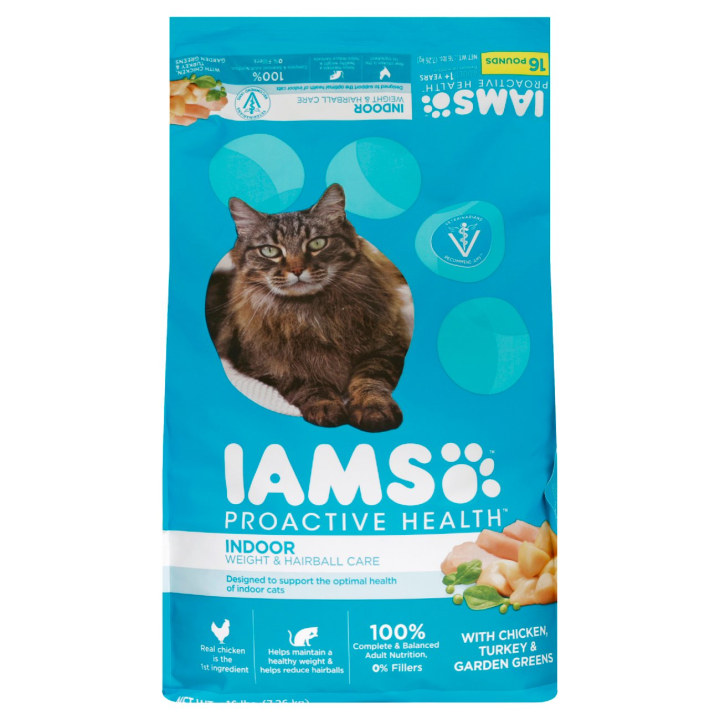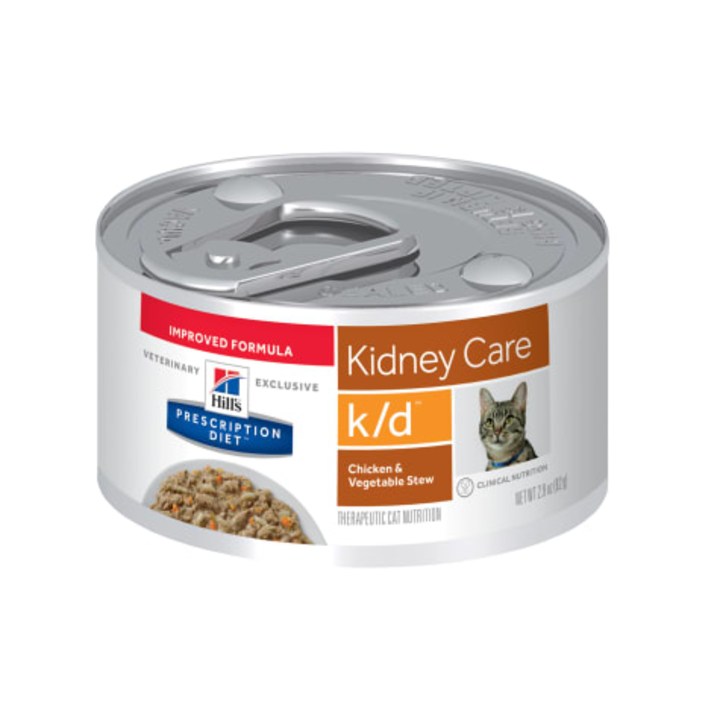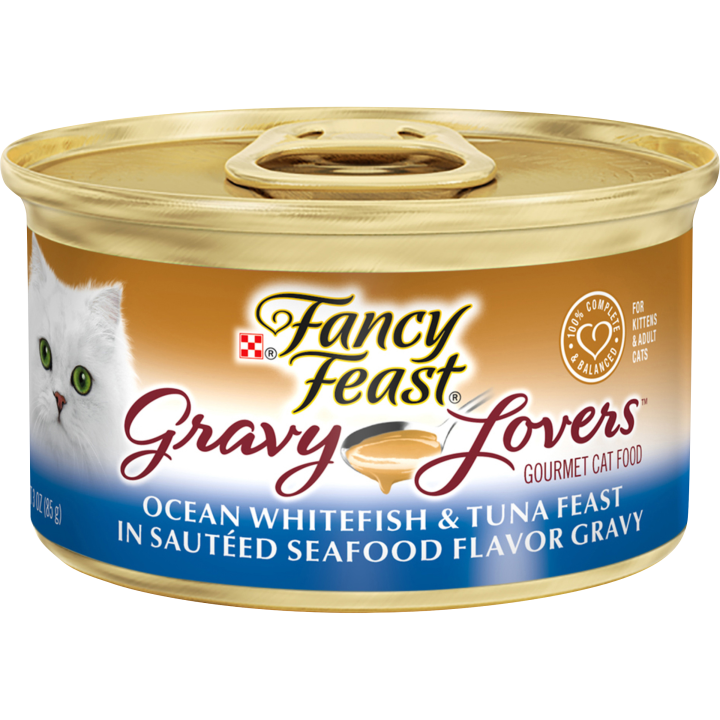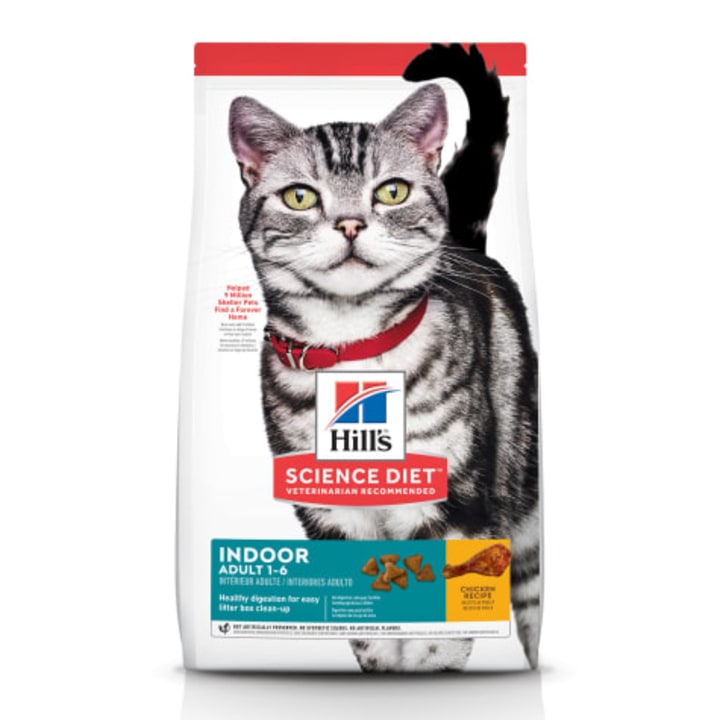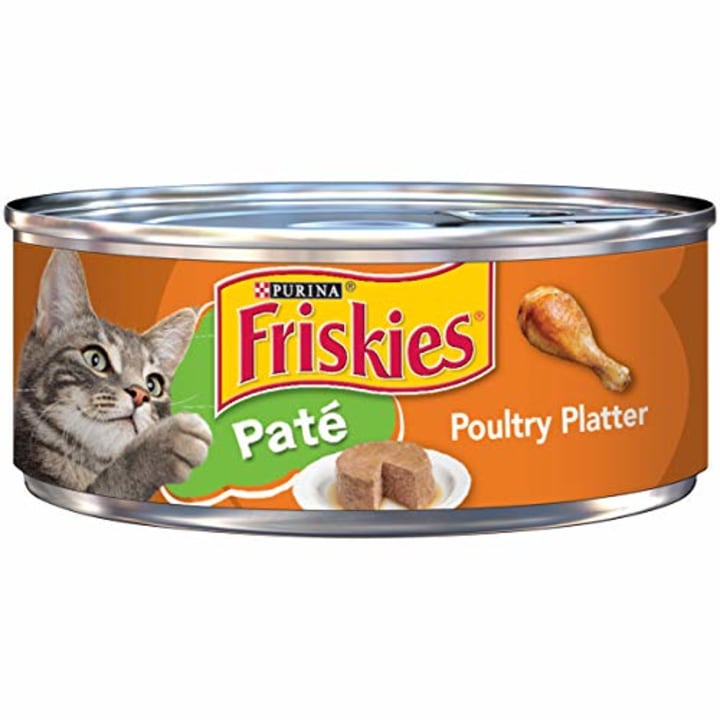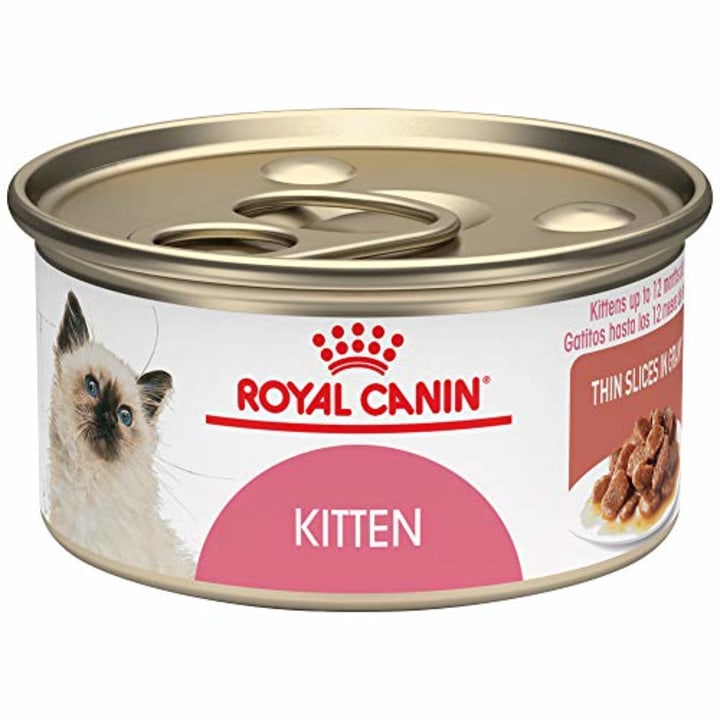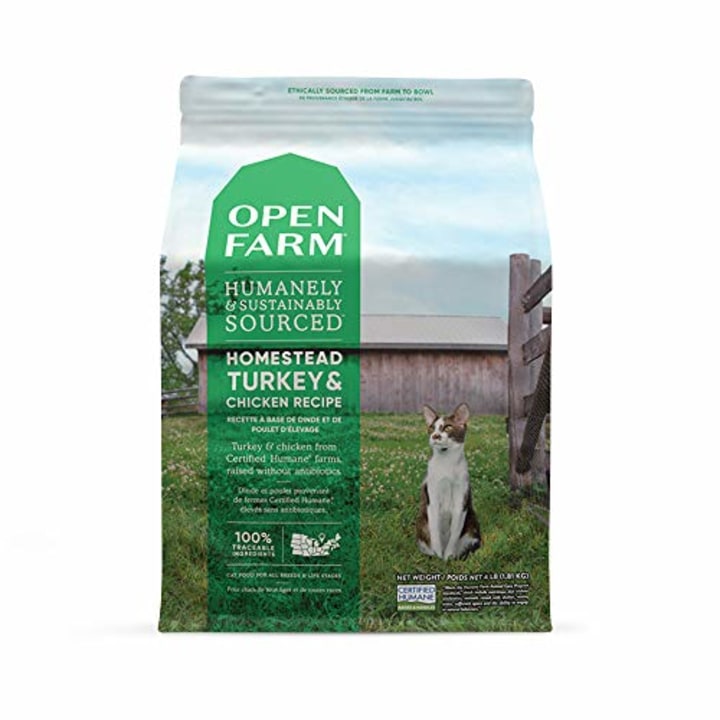Good news. Your cat needs you. They also need the right cat food. With so many options on the market today – wet versus dry, raw versus cooked, store-bought versus subscription or locally sourced – finding the best food for your cat can be overwhelming. Especially considering that not every cat food on the market is nutritionally balanced. According to Bruce Kornreich, DVM, PhD, DACVIM and director of the Cornell Feline Health Center, cats have very specific dietary needs – namely, that they must have a meat-based diet to survive. “They cannot be vegetarians or vegans. Cats are obligate carnivores.”
SKIP AHEAD The best cat food | Dry cat food versus wet or canned cat food
So what’s the best cat food for your obligate carnivore? Check the first few ingredients on the label: “If meat and meat by-products are among the first ingredients listed, it suggests the food likely has enough animal source ingredients to provide essential amino acids and fatty acids,” said Kornreich. That said, “cats can’t live on meat alone,” added Kornreich.
To help you whittle down the choices, Select reached out to veterinarians to ask them what cat owners should consider when shopping for a quality cat food and what ingredients to avoid. Below, we’ve compiled a list of the best cat food options with their expert-approval, available from major retailers or online subscription services, that will meet all of your cat’s nutritional needs at every life stage.
How to shop for quality cat food
According to Kornreich, first and foremost, you should consult your veterinarian about your cat’s specific dietary needs in conjunction with age and to get an expert read on what needs or restrictions your cat might be exhibiting – for example, if they are pregnant or nursing (more on this below in “Dry cat food versus wet). Once that’s established, he said, you should approach buying cat food the same way you would breakfast: It needs to be nutritionally balanced, he said. “Cats must get the appropriate balance of proteins, carbohydrates, fats, vitamins and minerals at every life stage.” For example, the experts we consulted recommended that kittens be given a diet consisting of more energy-producing nutrients, like proteins and fats, while a senior cat is given a diet that is lower in calories because older cats are usually less active (more on this below).
Kornreich also recommended looking for a nutritional adequacy label from the Association of American Feed Control Officials (AAFCO), a nonprofit that assesses what’s in pet food and animal feed. This label states what life stage the food is suitable for, provides a complete listing of ingredients and the amount of each ingredient in the recipe.Beyond that, you’ll want to look for the following qualities:
- Protein: Kornreich noted that protein in cat food can come from chicken, rabbit, venison or duck, but “the important thing is that the sources of the raw materials be reliable and combined in a way that achieves the right balance of nutrients.”
- Natural, whole ingredients: Shelly Ferris, DVM, the regional director of Petco Veterinary Services recommended looking for whole ingredients such as “such as fruits, vegetables and high-quality carbohydrates like rice, oats or potatoes,” she said.
- Vitamins and nutrients: Ferris recommended looking for calcium (good for bones, teeth, muscle control and ion balance) and phosphorus (a vital nutrient for cell membranes and energy), as well as vitamin D, which regulates cats’ calcium and phosphorus balance. Omega-3 and amino acids are also excellent for supporting your cats’ overall health, but these can also be given separately as supplements, according to AAFCO.
What to avoid
As for what to avoid, Kornreich says to stay away from cat foods that list
- Peas or legumes as one of their top 10 ingredients: “There is some evidence that these may lead to the development of a type of heart disease referred to as dilated cardiomyopathy,” said Kornreich, though he added that this syndrome primarily has been reported in dogs.
- Raw cat food: Kornreich noted that some raw cat foods have been known to contain bacteria and parasites that can be harmful to both cats and their owners.
- “Exotic” ingredients: Tim Julien, chief medical officer at Paz Veterinary in Austin, recommended avoiding ingredients that are “more about sentiment and marketing than nutrition.” He points to dyes that make food look more appealing to people (cats perceive color differently) and “exotic” ingredients like kangaroo and lentils, which are “less well studied in cats.”
Best cat foods to consider in April 2023
In line with our experts’ guidance, all of the following highly rated cat foods — including dry food and canned wet food — meet or exceed the regulations set by the AAFCO. Here are some of the most nutritionally balanced, highly-rated recipes approved by our experts that are found online and in most major retailers.
Purina Pro Plan LiveClear Probiotic Chicken & Rice Formula
This Amazon Choice dry cat food lists chicken and rice as the first two ingredients in this formula designed for a healthy coat and digestion. Dried egg product, the sixth ingredient, is meant to help reduce cat allergens, according to the brand. This Purina option has a 4.7-star average rating from 1,347 reviews on Amazon.
Purina Cat Chow Complete Dry Cat Food
This high-protein recipe is appropriate for cats of all ages and is made from farm-raised chickens, says the brand. It’s also loaded with omega-6 fatty acids, carbs for energy and 25 vitamins and minerals, says Purina. It has a 4.7-star average rating from 3,343 reviews on Amazon.
Iams Proactive Health Indoor Weight & Hairball Care
A dry food option for cats at least 12 months old, Iams’ Proactive Health is high in protein from its blend of chicken, turkey and salmon, says the brand. The recipe also includes beet pulp to reduce hairballs, and L-carnitine – a natural chemical made in the brain, liver and kidneys – that helps turn fat into energy, says Iams. It has a 4.8-star average rating from 32,422 reviews on Amazon.
Hill’s Prescription Diet k/d Kidney Care Chicken & Vegetable Stew
This wet food is available to buy in stores like PetSmart and Petco but is typically not recommended without your vet’s approval. Hill developed this recipe to help protect your cat’s kidney function and to improve muscle mass, says the brand. It has reduced levels of phosphorus and sodium and is enriched with omega-3 fatty acids. It also has high levels of essential amino acids and L-carnitine, says the brand. This option has a 4.5-star average rating from 793 reviews on Amazon.
Fancy Feast Gravy Lovers Ocean Whitefish & Tuna Feast
According to Purina, the maker of the Fancy Feast line, this recipe provides complete and balanced nutrition at every life stage: the whitefish is cut into small, delicate chunks so it’s easy for both kittens and seniors to chew and digest. Its first ingredient, fish broth, provides extra hydration for your cat, says the brand. It has a 4.5-star average rating from 531 reviews on Chewy.
Hill’s Science Diet Adult Indoor Chicken Recipe
This cat food is a complete, balanced diet for adult cats, says the brand, and contains no artificial flavors, colors or preservatives. Hill’s says the antioxidants and vitamins within it helps boost cats’ immune systems, and its high dose of healthy fiber in the form of dried beet pulp aids digestion and helps reduce hairballs. It has a 4.7-star average rating from 12,402 reviews on Amazon.
Friskies Classic Pate Poultry Platter
This paté recipe, for kittens and adults, provides 100{7b6cc35713332e03d34197859d8d439e4802eb556451407ffda280a51e3c41ac} complete and balanced nutrition and provides extra moisture for your cat’s diet, says the brand.Poultry, water, meat by-products, liver, poultry by-products and fish are the first six ingredients in this wet canned food. It has a 4.6-star average rating from 15,787 reviews on Amazon.
Royal Canin Kitten Food
Kittens need a diet with a higher energy and protein content, said Kornreich, and Royal Canin Kitten Food aims to provide just that. According to the brand, it contains loads of essential amino acids for healthy functioning and development, along with taurine to aid digestion and the excretion of toxins, which helps to maintain your kitten’s reproductive and neurological systems. A complete blend of vitamins and minerals ensures healthy bone growth, blood, coat and skin, says Royal Canin. This option has a 4.7-star average from 4,540 reviews on Amazon.
Open Farm Homestead Turkey & Chicken Dry Cat Food
The farm-to-bowl movement includes companies like Open Farm, which uses humanely raised meat from local farms and ranches; wild ocean whitefish caught using sustainable practices; and fresh, locally harvested fruits and vegetables, says the brand. Open Farm’s Homestead Turkey & Chicken Dry Cat Food is a blend of turkey, chicken and non-GMO cranberries and dandelion greens. It also comes in a wet version that can be used as a topper for dry food, says Open Farm. It has a 4.5-star average rating from 798 reviews on Amazon.
Smalls subscription cat food
Subscription cat-food service Smalls’ strength is its ultra-high-protein recipes made of human-grade ingredients, which have no fillers of any kind, says the brand. Smalls requests you take a quiz so they can determine the best wet or dry food (or a combination of both) for your feline companion. The online cat food company then sends a wet food mix tailored to your cat, directly to your house. Smalls has seven recipes in all, including Fresh Ground Bird and Fresh Smooth Fish.
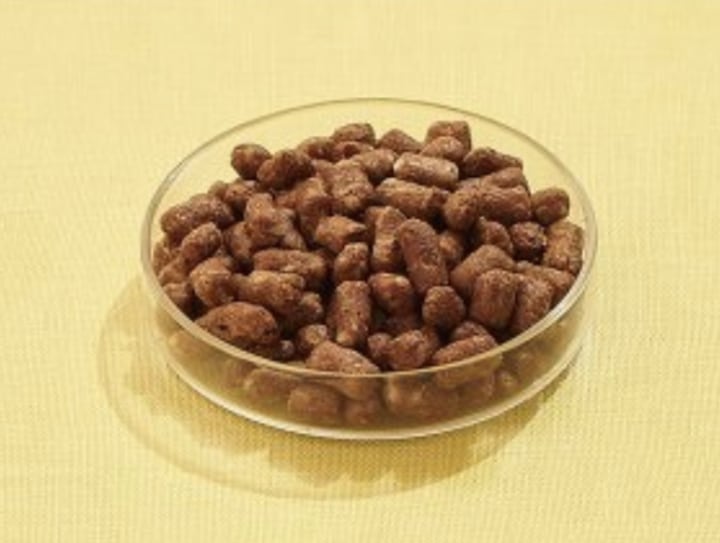
Dry cat food versus wet
As with any type of food you’re considering, Kornreich says that while there are excellent choices in both the wet and dry food sectors, it’s important to consult with your veterinarian. This will ensure that the type you choose is labeled as being nutritionally balanced for the life stage of your cat and to be aware if your cat has dietary restrictions.
For example, cats with kidney disease may have protein and phosphorus restrictions; cats with diabetes may have carbohydrate restrictions. “Feeding wet food to cats with kidney disease may be advantageous so they consume more water, but there are also some very good dry diets for cats with kidney disease, and water may be added to them to increase their water intake. The important thing is to consult with your veterinarian.”
Dry cat food is a popular choice partly because it is more convenient than wet cat food. “Dry food is cost effective, odorless, and it can be stored for long periods of time without spoiling,” said Ferris of Petco Veterinary Services. Wet food can be more expensive and has to be refrigerated once the can or pouch is opened (though its smell might entice a picky cat to eat). According to Julien at Paz Veterinary, dry cat food can be higher in carbohydrates than wet cat food. “An active cat can absolutely use carbohydrates as an energy source,” he says, adding that “a sedentary — aka indoor — cat will store extra carbs as fat.”
Comparatively, wet food “has higher levels of protein and fat, making it a great option for cats of various lifestyles and ages,” says Kornreich.
Best nutrients for kittens, adults and seniors
When it comes to cat food, cats are roughly divided into three age groups — kitten, adult and senior. “Kittens need more energy-producing nutrients — like proteins and fats — and more vitamins, minerals and water than adult cats,” said Ferris. “Formulas made specifically for kittens provide these nutrients in the right amounts.”Most cats will move from kitten kibbles to adult food on their first birthday.
Ferris recommended that pet owners gradually introduce new food over a week to help avoid upsetting your feline friend’s stomach. Adult cat food likely has less calories than kitten cuisine, while senior food (for cats around the age of 10) will likely be geared toward the specific health of your cat — they might have trouble chewing or a reduced ability to smell and taste, for example. If the food you choose is not agreeing with your cat, it will be obvious: lethargy, vomiting, diarrhea and weight loss are some of the telltale signs, says Kornreich.
Meet our experts
At Select, we work with experts who have specialized knowledge and authority based on relevant training and/or experience. We also take steps to ensure that all expert advice and recommendations are made independently and with no undisclosed financial conflicts of interest.
- Bruce Kornreich, DVM, PhD, DACVIM is director of the Cornell Feline Health Center in Ithaca, New York.
- Shelly Ferris, DVM, is the regional director of Petco Veterinary Services in Vista, California.
- Tim Julien, DVM, is chief medical officer at Paz Veterinary Services in Austin, Texas
Catch up on Select’s in-depth coverage of personal finance, tech and tools, wellness and more, and follow us on Facebook, Instagram and Twitter to stay up to date.

